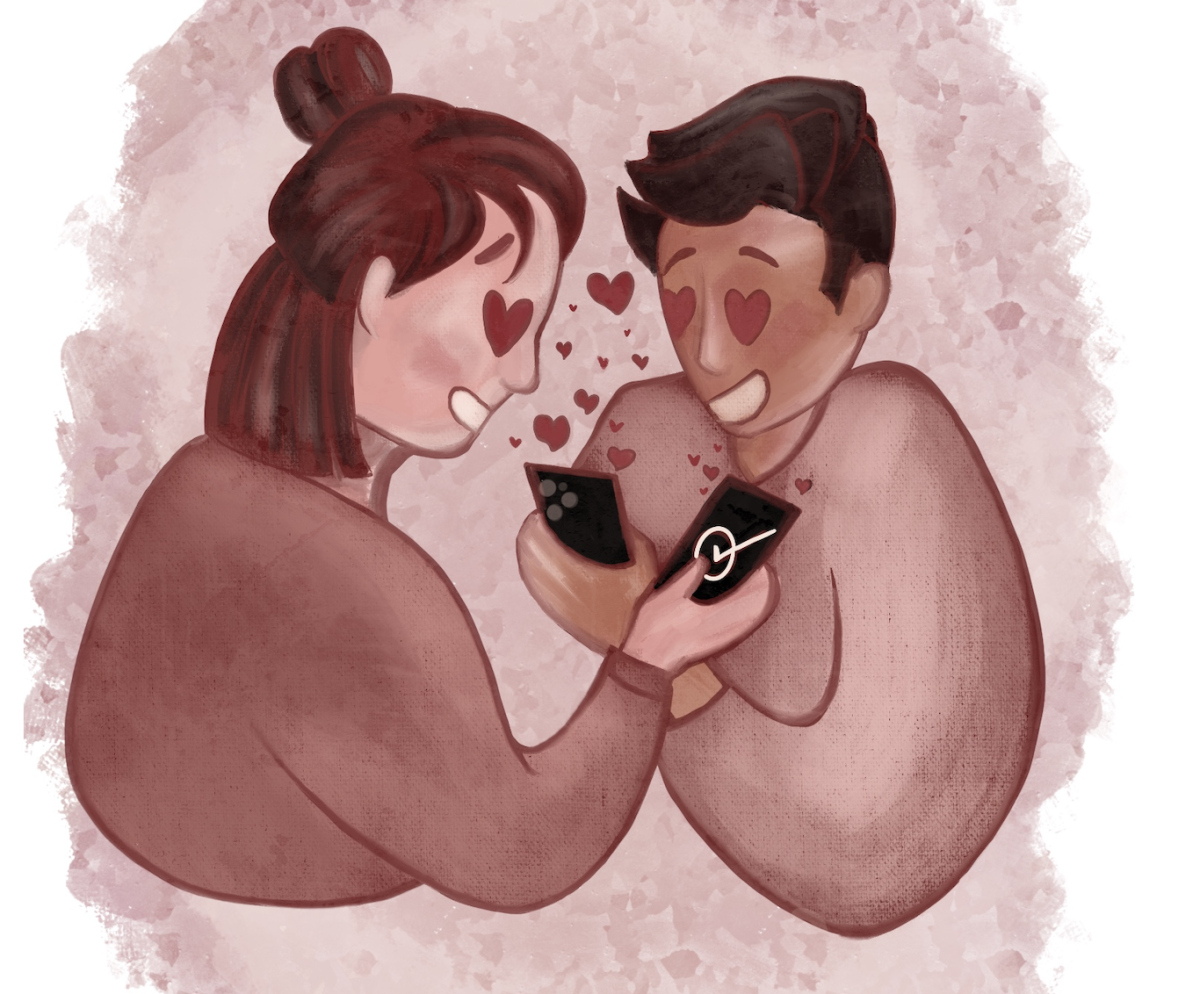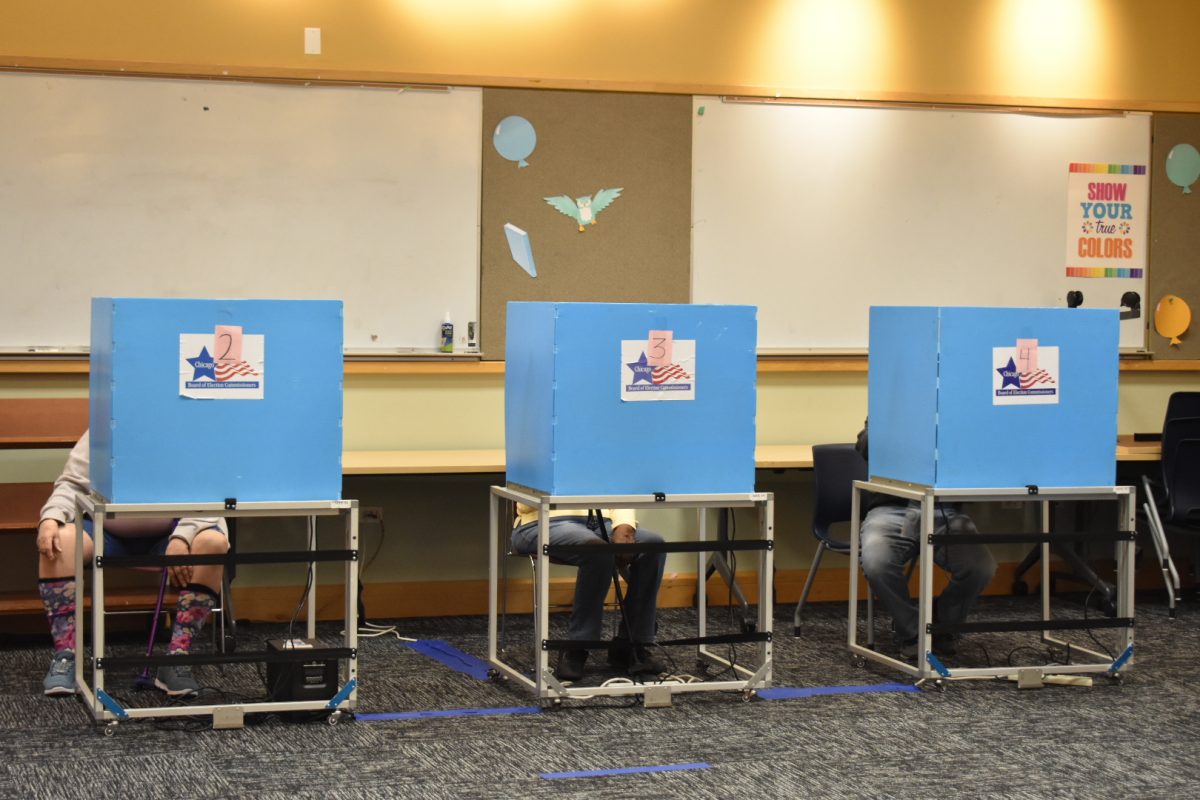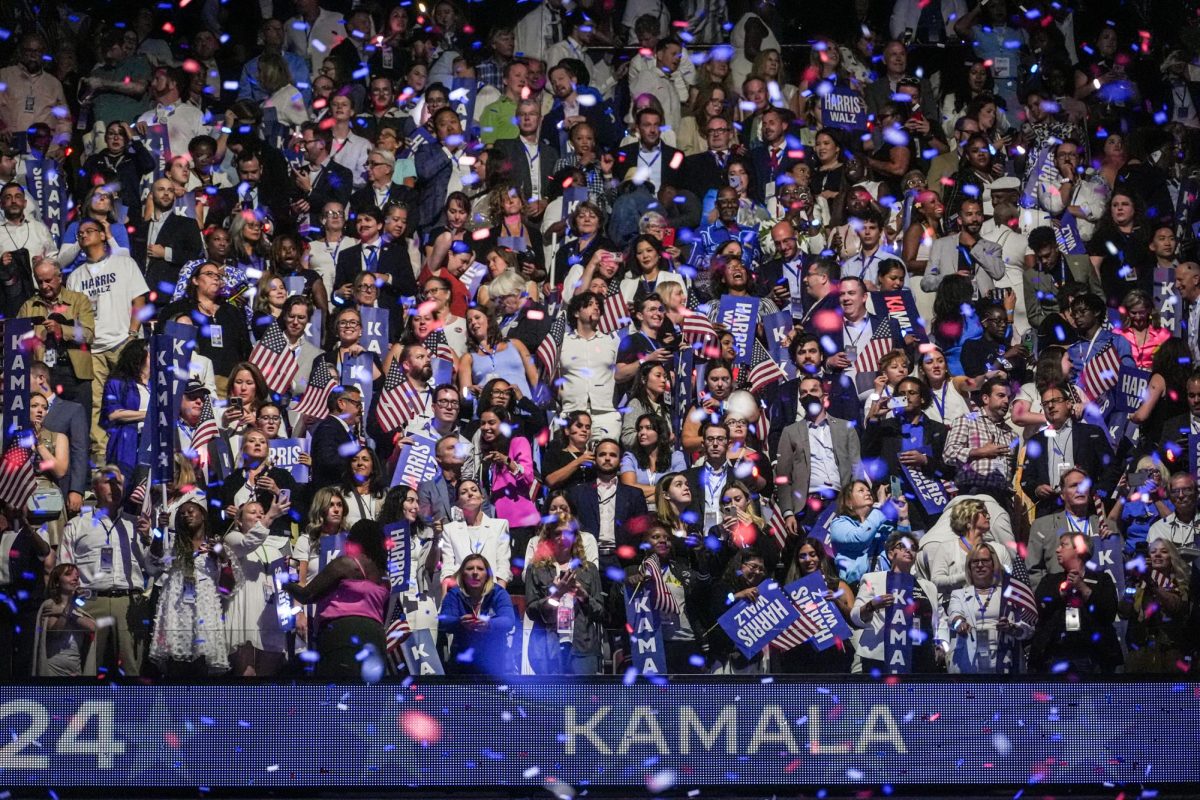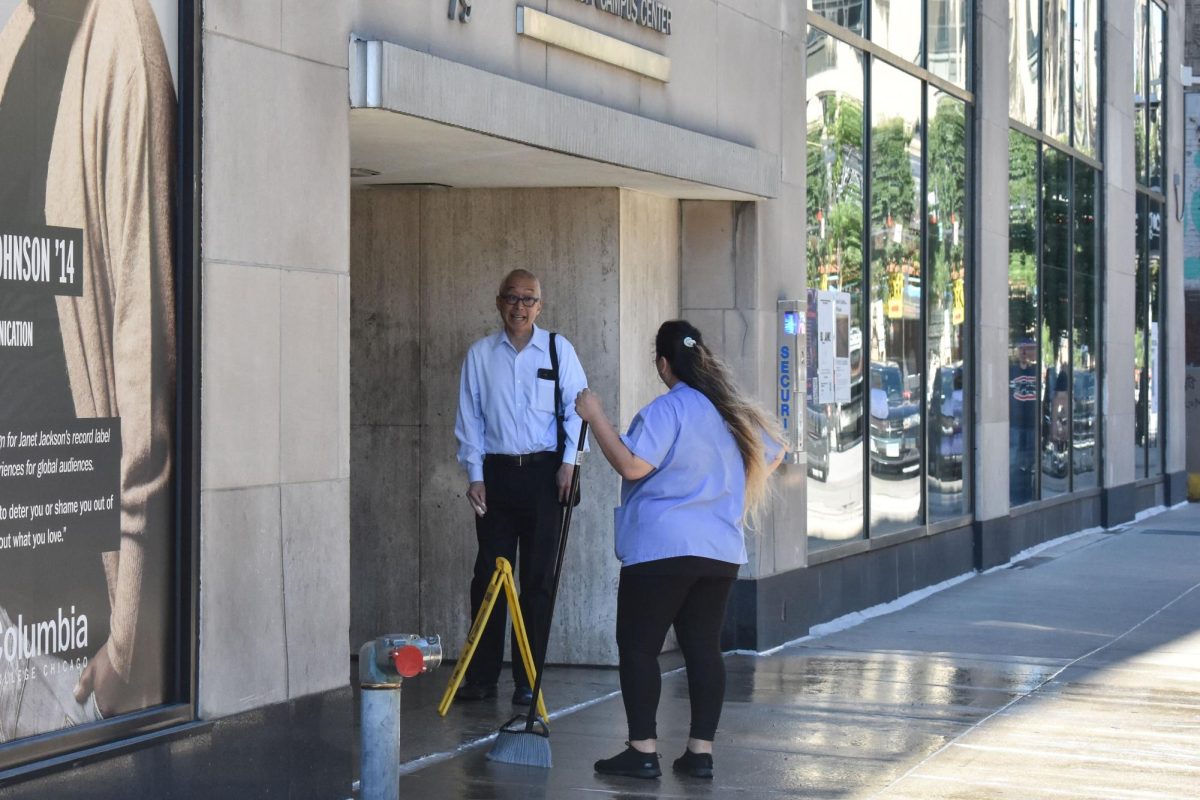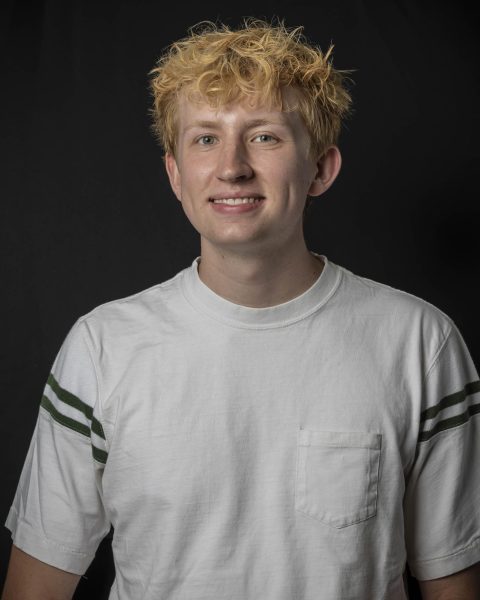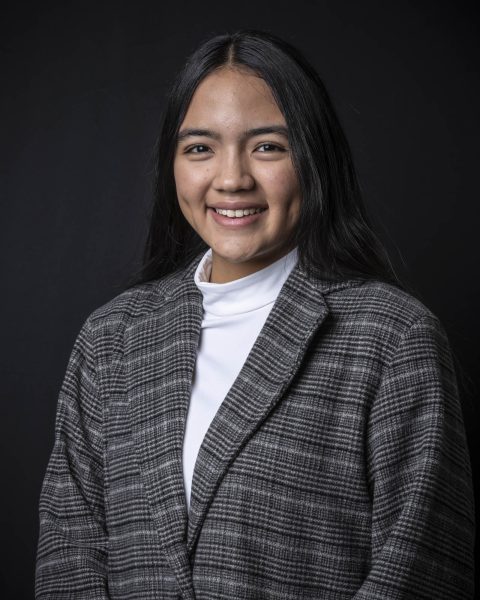THE SEX ISSUE
In a culture largely defined by digital interaction, further exacerbated by the COVID-19 pandemic, the use of online dating apps has never been higher.
Hinge, “the dating app designed to be deleted,” has a total of 23 million users. Tinder has more than 75 million users, and 60% of them are under 35. Approximately 48% of college students use dating apps to seek relationships, according to data collected by New York-based Gitnux. With data like this, it is easy to assume that finding lasting relationships online has never been easier. However, immediate success is not always the case.
Senior animation major Tyra Carey has used Tinder on and off since entering college, and has been on a handful of dates with matches from the app. Though she said she is glad to be getting experience connecting with people, the online format of meeting fellow singles is not her ideal scenario.
“I’ve never gone on a date when somebody asked me in person, it’s only been through dating apps,” she said. “I just wish that people would just come up to [me] and, you know, ask for my number.”
Carey said she is thankful that apps like Tinder have allowed her to explore potential connections, but has recently been contemplating quitting dating apps altogether in an effort to find connections more organically.
“I’m a people’s person, I like to talk to people and get to know them better. So I think forming connections is better that way, because I’ve not really had a lot of strong connections with people on dating apps,” she said.
In her role as director of Counseling Services at Columbia, Britt Hodgdon has observed a variety of student experiences with dating apps.
“Many people seem to show up believing they’re taking them seriously, and then shy away from the vulnerability it would take to probably get the results they’re hoping for,” she said. “People are really hungry for connection, and don’t always have the skills for practicing that connection.”
On the flip side, Hodgdon has also observed that apps may offer more opportunities for queer users to get experience connecting with others.
“It’s a quick way to identify your dating population,” Hodgdon said. “It’s much safer than going into a public space and calling someone out and asking if they’re into you.”
Senior animation major Maddy Humpreys, identifies her sexuality as questioning and has used Tinder and Hinge to see what is out there.
“Since I really don’t know much about my sexuality, it’s just kind of exploration at this point,” she said. “Since I grew up in a small town, you kind of don’t get to explore that when you’re 16 or 17.”
Fabiola Juarez, a senior film and television major, has found Hinge to be a much more all-encompassing tool for potential matches.
“I can understand their personality better with the questions, the prompts and the option of having a video or an audio clip,” she said. “It definitely made me feel more like I was not only choosing from looks, but I was able to get a little bit of insight on their personality.”
Sophomore theater major Bar Schaffer joined apps like Tinder and Hinge first as an entertainment source but later gained two separate long-term relationships out of them.
“Anytime I’m on the apps it’s kind of like ‘I’m kind of bored, I’m not meeting anyone new organically. Who’s out there?’” she said. “It always started like that. Then very specific people who ticked enough boxes to meet up with them, I did. But that comes very rarely.”
Apps such as Hinge allow users to filter their pool of prospects through identifiers like height, political and religious beliefs and education level.
“They have to be, on paper, exactly my type that I want [when] looking for a man,” Schaffer said. “In a shallow way, sure, I care about how tall you are. It’s definitely a help to see who ticks the boxes.”
These preferences allow for a more filtered pool of potential matches, but according to Hodgdon, they can also become impediments to possible connections.
“Humans are so much more complicated. If only it were as easy as sort of picking the right ingredients and getting just what I want,” she said. “There’s something captivating about standing with someone, and the energy that comes from standing with a real person. I think when we’re skipping that spark and going right to the pragmatic ‘ingredients’ of a person, we reduce the power of the spark a little bit.”
Junior music technology major Aaron Diaz has found great success from dating apps, specifically Tinder. He has now been with his girlfriend for over three years after first matching with her on Christmas Eve in 2020.
“The in-person interaction is a lot more genuine and it’s better,” he said. “I think I was just lucky enough to have met my girlfriend on there.”
Bela Gandhi, founder of Chicago-based Smart Dating Academy is a believer in online dating. But Gandhi, who specializes in coaching people of all ages who are looking for relationships, finds that people can tend to limit their pool of prospects by only using apps.
“I think that it’s important for people of all ages to have that comfort level socially, in being able to approach somebody and not rely on DMs and messages,” she said. “Ultimately we’re human beings and we want real contact with people.”
Gandhi said college students particularly should take advantage of their physical surroundings on campus as a way to meet potential connections.
“The number of upwardly mobile single professionals, when you’re in college, you’ll most likely not see that again in that type of a concentration,” she said. “Take advantage of this concentration of single people that are all together. We assume it goes on forever, but it doesn’t.”


